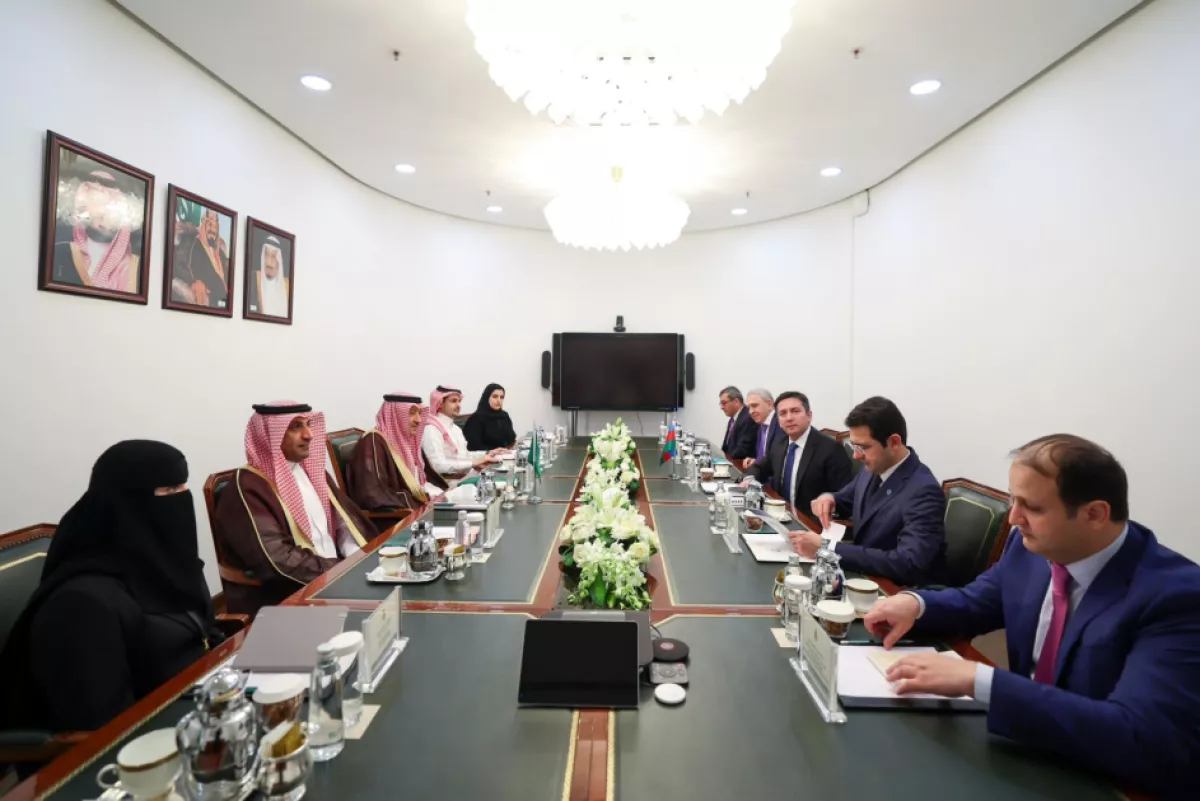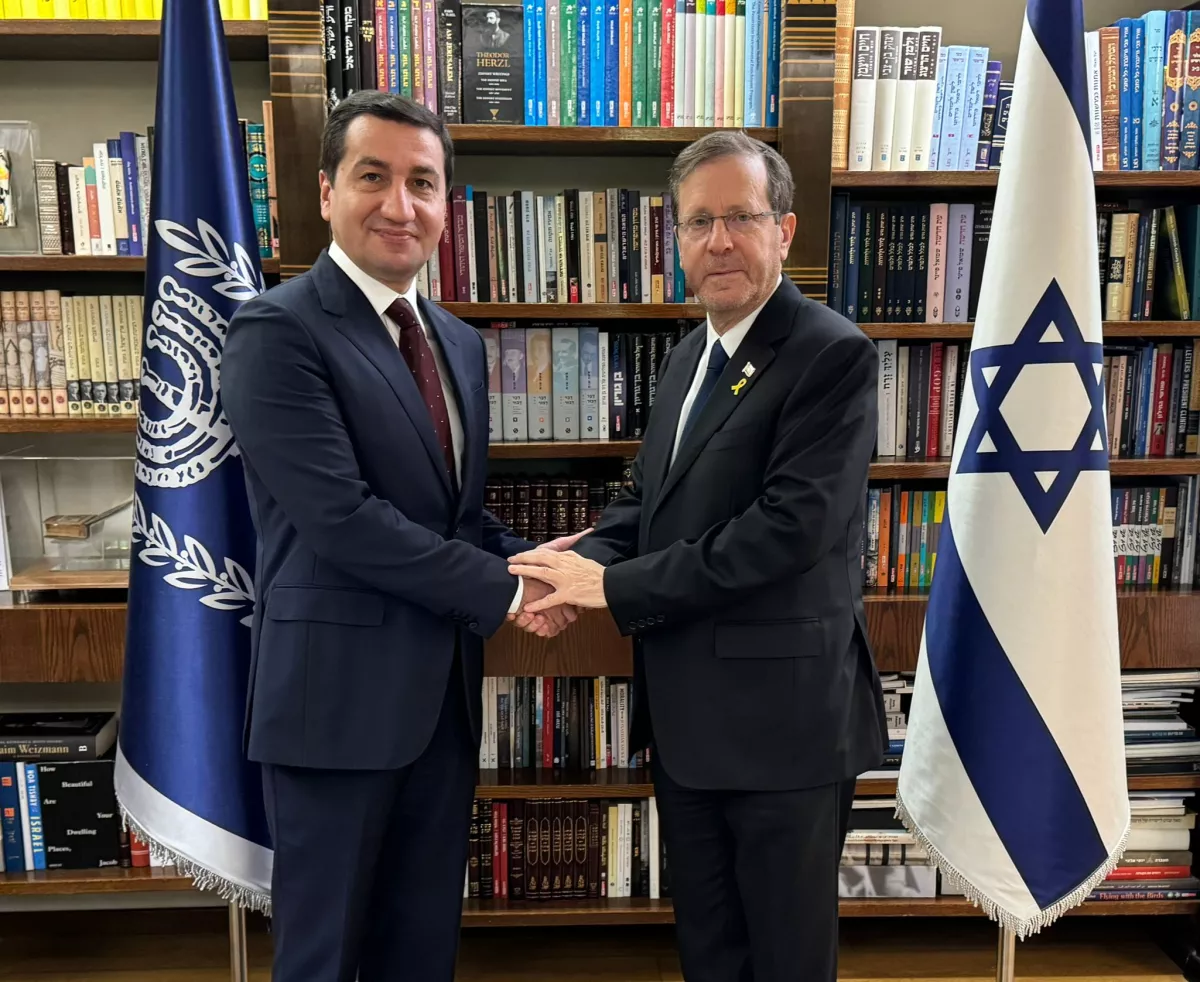Azerbaijan's Middle East strategy: Building bridges for tomorrow Baku strengthens diplomacy
The overthrow of Bashar al-Assad's regime marked the beginning of a new era not only for Syria but for the entire Middle East. While significant challenges remain, new opportunities are also emerging. Every nation attuned to the pulse of global geopolitics is striving to promptly and effectively negotiate and align its national interests with the key players in the region.
In this context, Azerbaijan continues to demonstrate its diplomatic finesse and strategic acumen. For instance, Saudi Arabia, actively involved in efforts to shape Syria's transitional period, issued a statement on December 8 warning against "chaos and division." These concerns are understandable. Meanwhile, Riyadh on December 9 hosted the third round of political consultations between the foreign ministries of Azerbaijan and Saudi Arabia.
The Azerbaijani delegation was led by Deputy Foreign Minister Yalchin Rafiyev, while the Saudi delegation was headed by Deputy Minister of Foreign Affairs Waleed Al-Khuraiji. The meeting focused on strengthening bilateral ties and discussed the current state and future prospects of cooperation in political, economic, energy, and humanitarian spheres. Both sides highlighted significant potential for enhancing collaboration in areas such as tourism, green energy, and investments.

Azerbaijan is promptly and strategically strengthening relations with a country set to play a critical role in shaping Syria's future. At the same time, it is evident that the primary beneficiaries of the recent developments are Türkiye and Israel—two nations with close ties to Azerbaijan.
Turkish Foreign Minister Hakan Fidan emphasized that a new era has begun in Syria. "At this point, a new era has begun in Syria. It is now necessary to focus on the way forward. We wish to see a Syria where different ethnic and religious groups live in peace with an inclusive understanding of governance. We want to see a new Syria that will have good relations with its neighbors and bring peace and stability to its region. We are ready to provide the necessary support for this. To this end, we maintain the necessary dialogue and coordination with all parties, especially regional actors," Fidan stated.
Indeed, on December 8, U.S. Secretary of Defense Lloyd Austin and his Turkish counterpart Yaşar Güler, during a phone conversation, reaffirmed the importance of close U.S.-Türkiye coordination to prevent further escalation in an already unstable situation and to avoid any risks to U.S. forces and their partners. This underscores the U.S. acknowledgment of Türkiye's crucial role in the present and future of both Syria and the broader region.
Russia, too, recognizes Türkiye's importance. Moscow has already sought Türkiye's support to ensure the safe withdrawal of its troops from Syria.
In this context, it is worth recalling that just days ago, Azerbaijani Prime Minister Ali Asadov met in Baku with Fuat Oktay, Chairman of the Foreign Affairs Committee of Türkiye's Grand National Assembly. Oktay participated in the international parliamentary conference Parliamentarianism: Traditions and Perspectives held at the Milli Majlis. Additionally, he visited Azerbaijan's liberated territories, where he made a series of impactful and timely statements.
All these developments highlight the deep and active ties between Baku and Ankara. Accordingly, Türkiye's growing influence in Syria and the Middle East also opens up significant opportunities for Azerbaijan.

The uniqueness of Azerbaijan's foreign policy strategy lies in its ability to act swiftly not only on the Syrian front but also in its engagement with Israel. Notably, Israeli President Isaac Herzog on December 9 received Hikmet Hajiyev, Assistant to the President of Azerbaijan and Head of the Foreign Policy Affairs Department of the Presidential Administration. Hajiyev conveyed greetings from Azerbaijani President Ilham Aliyev to Herzog.
"They discussed the matters of bilateral cooperation between Azerbaijan and Israel, as well as the regional developments," stated the Azerbaijani Embassy in Israel in a post on the social media platform X.
Additionally, Hikmet Hajiyev met with Israeli Foreign Minister Gideon Sa’ar to discuss the latest developments in the Middle East and the Caucasus, regional security, and the strong bilateral relations between Azerbaijan and Israel.
There is no doubt that Hikmet Hajiyev will excel in accomplishing the task entrusted to him, and this visit to Israel will further strengthen the ties between our countries. Moreover, the complex nature of Israel’s relationship with Türkiye should not be overlooked. It is reasonable to suggest that Azerbaijan could play a pivotal role in fostering reconciliation between these two friendly nations.
In any case, we are witnessing the entirely appropriate and strategic activity of official Baku in what is currently one of the most critical geopolitical arenas. This comes as no surprise. Azerbaijani President Ilham Aliyev, who is the architect of the country’s foreign policy, has repeatedly emphasized his ability to determine what needs to be done, how, and when.








